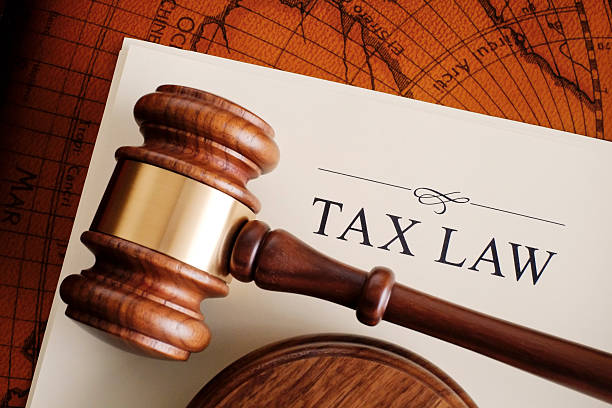Imagine this — the Prime Minister appears on national television and announces:
“Dear citizens, starting midnight, there will be no more income tax in our country. Yes, India is now a zero income tax nation!”
Sounds like a far-fetched dream, right?
But this idea has actually been floated by BJP MP Subramanian Swamy, who believes that removing income tax could stimulate the economy. Interestingly, several countries around the world already operate without personal income taxes.
But the million-dollar question is — can India afford to do the same? Let’s explore the potential impact, both positive and negative.
First, Let’s Understand How Taxes Work
In India, taxes are primarily of two types:
1. Direct Taxes
These are paid directly to the government by individuals and businesses — such as Income Tax, Corporate Tax, Capital Gains Tax, and Property Tax.
2. Indirect Taxes
These are collected indirectly when you buy goods or services. A prominent example is GST (Goods and Services Tax).
For example, if the government raises GST on milk, the price you pay at the store increases. Though the tax goes from the manufacturer to the government, the burden falls on your wallet. That’s why it’s called an indirect tax.
Similarly, taxes on fuel like excise duty on petrol and diesel are also indirect in nature.
The Truth About Taxpayers in India
There’s a common narrative that “only 2–3% of Indians pay tax.” That’s misleading.
Every Indian who purchases goods or services pays tax — indirectly. Even tourists who spend money in India contribute via GST.
What’s often referred to in this 2–3% figure is actually Income Tax. According to government data from 2020, only 1.46 crore people in India paid income tax — that’s just about 1% of the population.
And the reason is not widespread evasion — it’s simply because most people earn below the exemption threshold.
Why Salaried Taxpayers Feel the Pinch
Middle-class salaried employees often feel unfairly treated when it comes to taxes. Their income is transparently recorded, and tax is deducted before they even receive their salary.
Meanwhile, it’s relatively easier for businesses or self-employed individuals to under-report earnings. On top of that, agricultural income in India is fully tax-free — a policy meant to protect small farmers but also exploited by wealthy landowners.
A 2011 RTI revealed that nearly 7 lakh individuals claimed massive earnings from agriculture yet paid zero tax.
What If Income Tax Was Abolished?
Though speculative, proponents of this idea offer several arguments in its favor:
1. Boosting Consumer Spending
Without the burden of income tax, people will have more disposable income — potentially increasing consumption and fueling economic activity.
2. Reduction in Black Money
When there’s no income tax to avoid, there’s less incentive to hide income. This could bring more money into the formal economy, increasing bank deposits, reducing interest rates, and encouraging investment.
3. Saving on Tax Collection Costs
The government invests significant resources in tax infrastructure, IT systems, audits, and staffing. Removing income tax would eliminate these administrative expenses.
The Flip Side: Where Will the Government Get Its Revenue?
Here’s the biggest challenge: Income tax contributes around 26.4% of the government’s total tax revenue, second only to GST (28.3%).
If that income vanishes overnight, the government would face a serious fiscal gap.
Supporters argue that increased economic activity would lead to higher GST collections and compensate for the loss. But there’s no guarantee that this would happen — or happen fast enough.
Lessons From Other Countries Without Income Tax
Let’s take a look at how some nations operate without income tax:
🇦🇪 United Arab Emirates
No personal or corporate income tax — but the government earns heavily from oil revenue, and imposes high taxes on banks, alcohol, and entertainment.
➡️ India doesn’t have vast oil reserves, making this model unsuitable.
🇲🇨 Monaco
A tax haven with ultra-wealthy residents. High VAT (19.6%) and luxury property taxes help fund public services.
➡️ This model works because of Monaco’s size and wealth concentration — not scalable to a country like India.
🇧🇲 Bermuda
Relies on extremely high import duties, land taxes, and payroll taxes.
➡️ These taxes burden consumers heavily — applying them in India could hurt the poor disproportionately.
So while income tax-free models exist, they rely on alternative revenue streams that may not be viable in India’s context.
If Not Income Tax, Then What?
If income tax were abolished in India, here are some alternatives the government might consider:
1. Raise GST
While it may seem simple, this move could be regressive. Everyone pays the same GST rate, whether they earn ₹5,000 or ₹5,00,000. This means poorer individuals end up paying a larger chunk of their income as tax.
2. Introduce New Taxes
Some ideas being floated:
- Expenditure Tax: Taxing people based on how much they spend, not how much they earn.
- Inheritance Tax: Taxing wealth passed on from one generation to the next. This was used in India earlier but was abolished in the 1980s.
Inheritance tax is especially interesting — some argue it’s fairer than taxing earned income, since recipients haven’t worked for the inherited wealth.
Final Verdict: Is It Worth It?
Abolishing income tax sounds revolutionary and attractive, especially for the salaried class. But the decision isn’t as simple as it seems.
While there’s theoretical economic upside, there’s also the risk of widening inequality and overburdening the poor through indirect taxes.
In the end, the government must make a data-driven, balanced choice that serves the best interests of the common citizen.
What Do You Think?
Should India experiment with a zero-income tax policy? If so, what alternatives should fund public welfare?
💬 Drop your thoughts in the comments below — we’d love to hear your opinion!
📢 If you enjoyed this article, follow the blog for more in-depth explainers on India’s economy, governance, and policy debates.


